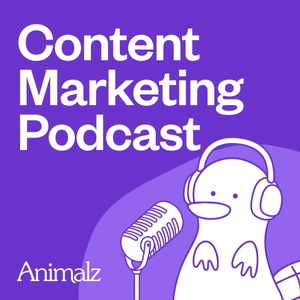
The importance of authentic writing, with Shrek writer Roger S.H. Schulman
12/18/17 • 62 min
Previous Episode

How Ann Zuccardy became an accidental neuroscientist | #48
This week I am joined on another episode of Getting Goosepumps by Ann Zuccardy, and what an episode it is. Ann a former writer who suffered from a brain injury has since become, what she explains to be, an accidental neuroscientist. 4 years following her injury Ann has learned that the majority of new information she was discovering about her brain, is in fact backed up by science, hence the accidental title of a neuroscientist. How Ann’s brain injury made her smarter Since Anne’s injury in 2011 she has since been redefining what makes somebody ‘smart’. Ann enlightens us into less conventional ways of determining how smart somebody is. She explains how she was once measured on things like her school grades, her job, and the amount of money in her check-book. Today she measures her level of smartness on inventing new ways to do old tasks, her ability to be creative and learn through curiosity. The importance of being present in every moment Ann explains due to her injury, she has no other choice, nor physical capacity, but to be present in everything she engages in. Her ability to only focus on one task at a time has taught her that more people should practice this. Listening to people without thinking of an agenda of what to say next is something Ann can’t do, however this is something she would encourage more people anyway to do too. Telling stories with humour makes a more memorable experience Ann talks of her The Safe/Unsafe Ted-ex Talk and how embracing your ‘inner-dork’ is something she preaches and encourages. Stepping out of your comfort zone every day and doing so with a child’s mind like Tom Hanks in BIG is a way of exposing our brains to novelty it needs to grow. Finding levity in a serious moment and creating stories create memories, something Ann encourages and wills us to do more.
Next Episode

Jennifer Grisanti and the personal void. Tips and techniques from a television script expert
Jen Grisanti is an acclaimed Story/Career Consultant at Jen Grisanti Consultancy, Inc.Jen is also a Writing Instructor for Writers on the Verge at NBC, a former studio executive, a blogger for The Huffington Post and author of Story Line: Finding Gold In Your Life Story, TV Writing Tool Kit: How To Write a Script That Sells, and her upcoming book, Change Your Story, Change Your Life. In this podcast, she discusses the concept of "the personal void" in storytelling, how to tell a story that people will care about and the trigger incident that every story needs. Listeners can get a discount on one of her writing courses.Visit https://jgcis-master-classes.thinkific.com/ and use coupon code bryanadamspodcastjgcoupon
If you like this episode you’ll love
Episode Comments
Generate a badge
Get a badge for your website that links back to this episode
<a href="https://goodpods.com/podcasts/getting-goosebumps-the-power-of-storytelling-19845/the-importance-of-authentic-writing-with-shrek-writer-roger-sh-schulma-696446"> <img src="https://storage.googleapis.com/goodpods-images-bucket/badges/generic-badge-1.svg" alt="listen to the importance of authentic writing, with shrek writer roger s.h. schulman on goodpods" style="width: 225px" /> </a>
Copy




